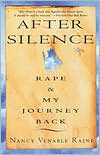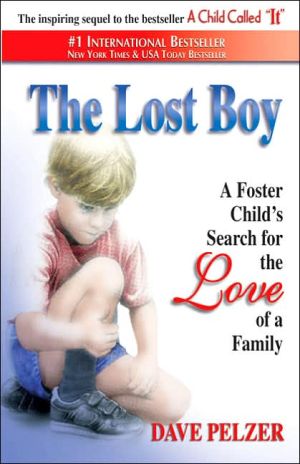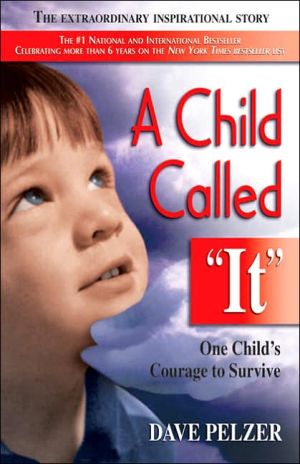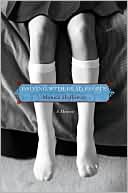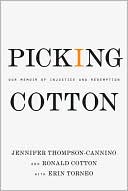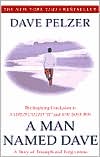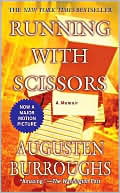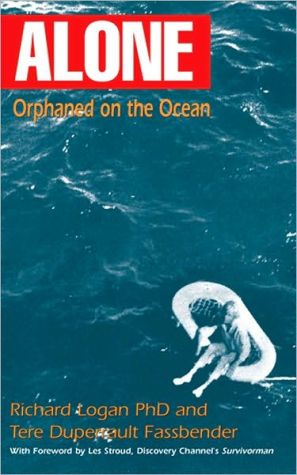After Silence: Rape and My Journey Back
"Silence has the rusty taste of shame. The words shut up are the most terrible words I know. . . . The man who raped me spat these words out over and over during the hours of my attack—when I screamed, when I tried to talk him out of what he was doing, when I protested. It seemed to me that for seven years—until at last I spoke—these words had sunk into my soul and become prophecy. And it seems to me now that these words, the brutish message of tyrants, preserve the darkness that still covers...
Search in google:
"Silence has the rusty taste of shame. The words shut up are the most terrible words I know. . . . The man who raped me spat these words out over and over during the hours of my attack--when I screamed, when I tried to talk him out of what he was doing, when I protested. It seemed to me that for seven years--until at last I spoke--these words had sunk into my soul and become prophecy. And it seems to me now that these words, the brutish message of tyrants, preserve the darkness that still covers this pervasive crime. The real shame, as I have learned, is to consent to them."After Silence is Nancy Venable Raine's eloquent, profoundly moving response to her rapist's command to "shut up," a command that is so often echoed by society and internalized by rape victims. Beginning with her assault by a stranger in her home in 1985, Raine's riveting narrative of the ten-year aftermath of her rape brings to light the truth that survivors of traumatic experiences know--a trauma does not end when you find yourself alive. Just as devastating as the rape itself was the silence that shrouded it, a silence born of her own feelings of shame as well as the incomprehension of others. Raine gives shape, form, and voice to the "unspeakable" and exposes the misconceptions and cruelties that surround this prevalent though hidden crime. With formidable power and in intimate detail, she probes the long-term psychological and physiological aftereffects of rape, its tangled sexual confusions, the treatment of rape by the media and the legal and medical professions, and contemporary cultural views of victimhood. For anyone, female or male, who has suffered from or witnessed the shattering effects of rape, After Silence inspires and points the way to healing. This landmark book is a stunning literary achievement that is a testimony to the power of language to transform the worst sort of violation and suffering into meaning and into art. The Women's Review of Books - Linda M. Williams [The book conveys] the damage wrought by [rape victims'] silence....should be read by anyone who cares about women and rape....and by everyone who thinks we have paid too much attention to the victimization of women or who thinks that women should just 'get over it.'
Chapter One\ THE BIRD\ \ A gold-feathered bird\ Sings in the palm, without human meaning,\ Without human feeling, a foreign song.\ --Wallace Stevens, "Of Mere Being"\ \ \ Some people believe that a bird appears when someone dies to carry the soul away. Perhaps it is true. A few minutes before I was raped, a bird I had never heard before flew into the branches of the cherry tree outside my kitchen window and began to sing. I couldn't see it through the small window over the sink and the filament of buttery leaves. I saw only jigsaw puzzle-shaped quiverings of lapis sky. It was autumn, a season I thought of as a time of beginnings. I still moved to the rhythms of my school years, the year beginning with my walk in new saddle shoes through the showy woods to catch the school bus, collecting butternut hickory, oak, and maple leaves to press in my books.\ \ The city trees were at their peak of color when I moved back to Boston after a year in Maine, where I had taken an extended consulting contract. I felt I was beginning again in Boston, although I'd lived there before for nearly a decade. The day I was raped I was settling into a new apartment in a familiar neighborhood, and enjoying the feeling of putting my world in order, leafing through books before placing them on the shelves, polishing candlesticks and washing dishes.\ \ The bird that sang from the cherry tree felt welcoming. I wanted to identify it, but my field guide was hopelessly inaccessible, still packed up in the jumble of boxes stacked in the living room. So I closed my eyes and listened. I remember still that the notes were tumbling down one after theother. They seemed to carry a singular joy, as if the light of the Indian summer day were becoming sound.\ \ I remember, too, that the song brought to mind something I had read a few days before in Henry Beston's The Outermost House and made note of in my journal, about animals having senses we have lost or never had, about them living by voices we shall never hear. I had grown up in the country, and understood exactly what Beston meant. The creature that miraculously produced this sweetness was beyond my measure, a mysterious gift. Listening to the song was a prayer, a sudden and effortless motion of my being outward. Even in the city, nature went about her own affairs--birds sang, the leaves on the city trees blazed, and the weeds in vacant lots turned their flowers into stiff wombs full of seeds. In those last minutes before my terror began, I felt blessed.\ \ As suddenly as it had appeared, the bird--a migrant, perhaps, on its way south--flew away and the mutterings of the city returned--traffic on the busy avenue a block away, a distant siren, the shouts of children playing baseball. I returned with renewed concentration to my tasks. I unpacked my kitchen utensils and put them in a drawer. I sharpened my kitchen knives and laid them on the counter. Then I filled a plastic bag with packing paper and dragged it out of the back door to the metal garbage cans at the side of the house. The air was a summery dream, sweeter still because a New England winter paced impatiently in the wings. As I stuffed the trash bag into a can, my back to the kitchen door, I listened for the bird, but it was gone. When I returned to the kitchen, I locked the back door behind me.\ \ There is nothing more reassuring than a locked door--unless you've locked the devil in with you.\ \ I am standing at the sink, washing a pan. I see my kitchen knives on the counter. I am always seeing my kitchen knives. I am still standing at the sink, washing a pan.\ \ A storm from behind, and impact. It sucks away the air around me in a great rush. I cannot breathe. Rage is turning the air to pumice. I cannot hear. Something in my eyes. The pain is in my eyes. I am closing my eyelids but they do not meet. Something is in my eyes, something is coiling around my neck, something alive. Something furious and terrible. Words, but I cannot hear them. I am thrashing in the air. There is a foul odor. My body is on fire from inside. My blood is rushing as if trying to escape. I hear only it. There is no air. It is all going out of me. Who is screaming? I do not know who is screaming. I cannot breathe.\ \ Now I hear the words. These are the words I hear: Shut up shut the fuck up you bitch you dirty bitch you fucking cunt shut up do you hear me you fucking dirty bitch I'm going to kill you if you don't shut up you bitch Im going to kill you.\ \ Now I am sucking air into my lungs. I am prey, grasping for air.\ \ Now I have a thought: So this is Death.\ \ Now I have a feeling: Anything to live.\ \ Now I feel something hard pressing against my back. I know what it is. It is a penis.\ \ Later I wondered, Did the man who raped me hear the birds song? And if so, what did the notes sound like in his ear? How could he have heard what I heard and still be what he was? Was the bird a warning that I should have heeded? How could I have felt so alive and not have sensed his shambling darkness drawing near? Had I not been awake at all, but asleep? I could not trust even my most fundamental perceptions. The feelings of wholeness evoked by my connection with nature, feelings that had been a glimpse of heaven since my childhood, were transformed in an instant into feelings of foreboding.\ \ In a single moment, I was robbed of what had always soothed me. A bird's song became a harbinger of evil, the prelude to a season in the underworld.\ \ * * * * * * * * * * * *\ \ The rapist was wearing slippers. This, the police said, suggested he had planned his attack. The slippers were enormous and my description of them was all the police had to go on. It wasn't enough. He attacked from behind and from the first instant had the advantage--stealth and surprise. His right arm held my neck in a stranglehold and I could not extricate myself. The fingers of his other hand dug into my eyes. After he had me immobilized, only my feet kicking out wildly, he hesitated for an instant. It came to me then that my mouth was still free. Words. I still had words. I spoke words as he began to push me toward the bedroom. Words that tried to reason where there was no reason. I was struggling against the movement forward with all my strength and speaking the words. His fingers slipped from my eyes briefly and I saw his foot, a dirty, worn slipper. To this day the sight of a dirty slipper makes me gag.\ \ He threw me on the bed facedown, his knee in the middle of my back. He pressed down with his full and great weight so that I thought he might snap my spine in two, like a twig. At this point I became intensely focused on him and a strange calmness suddenly displaced my terror. He grabbed my arms and bound them together behind me with duct tape. Then he jerked my head up by grabbing a handful of hair and spun the tape around my head, over my eyes. "Don't do this," I said. "Shut up, you bitch, or Ill break your arms." He pulled my bound hands upward toward my head to demonstrate, but I felt no pain. Then he threw me over on my back, and sitting on my hips, tore open my shirt, jerked my bra up around my neck, unzipped my jeans, and pulled them down as far as he could without shifting his position. He then had to stand beside the bed to get them all the way off, fighting against my shoes, flats that fit snugly. Then he yanked off my underpants. At that moment, time disappeared into a continuous present.\ \ Over the next three hours he raped me and tormented me with descriptions of how he would kill me with a knife, telling me exactly where he would cut me. Or maybe, he said, he would smother me with my pillow. He seemed undecided about the method. Many times he did cover my face with the pillow and press it down so that I could not draw a breath. Each time I expected to die, but he always relented just before I lost consciousness. He slapped my head with open palms after these episodes, the way you swat a fly.
\ Linda M. Williams[The book conveys] the damage wrought by [rape victims'] silence....should be read by anyone who cares about women and rape....and by everyone who thinks we have paid too much attention to the victimization of women or who thinks that women should just 'get over it.'\ — The Women's Review of Books\ \ \ \ \ Publishers Weekly - Publisher's Weekly\ On October 11, 1992, the seventh anniversary of her rap, eRaine determined that she would write about her assault and recovery. Six years of reflection and wide-ranging research served this talented writer well, for her account, studded with references to everything from Greek myths to government statistics, is fascinating and surprisingly readable. Raine describes the rape itself with remarkable objectivity. Then she describes the many small steps that she, like so many other rape victims, took to cope with the shame and ruptured faith that were the cruel legacy of her attack. After a period of relative isolation, followed by a stretch of believing she had "gotten over it," Raine was hit with intense depression. But the psychotherapy she underwent at the time, combined presumably with the writing of this book, helped bring her at last to a place where she can voice the pain of her experience, even if she can't erase it. Skillfully interwoven into this narrative are insightful digressions into, for example, the neurological underpinnings of post-traumatic stress disorder and the psychology behind that powerful emotion, shame. Neither self-pitying nor shrill, Raine has achieved an impressive balance between a starkly candid memoir of personal trauma and an ingenious literary discussion of an all-too-often unspeakable crime.\ \ \ Linda M. Williams[The book conveys] the damage wrought by [rape victims'] silence....should be read by anyone who cares about women and rape....and by everyone who thinks we have paid too much attention to the victimization of women or who thinks that women should just 'get over it.'\ — The Women's Review of Books\ \ \ \ \ Kirkus ReviewsAn exquisitely written account of a personal journey to hell and back. Raine's story of coming to terms with the rape that occurred when she was 39 years old is at once emotionally searing and insightful. A writer whose work has appeared in the New York Times Magazine and 'Southern Poetry Review, Raine writes with a rare eloquence even as she describes the most horrible scenes and emotions. As she waits in the hospital for medical help, for instance, after being raped and tortured for three hours, she describes herself as 'the scene of a crime.' The woman she was before the rape has simply disappeared. 'The rapist had stolen something at the center of what I had known as myself,' she confides. 'The rapist himself might be caught, but he could never produce the woman who had not been raped.' This book is Raine's attempt to rediscover that woman. While some memoirs are forthrightly revisionist, Raine courageously leaves no part of her inner soul unbared and no social taboo unquestioned as she seeks to better understand one of America's most unspeakable crimes. Using herself as an example, she explains how rape survivors frequently absorb the self-loathing and hatred that so often propel rapists to commit their crimes. She questions society's discomfort with this so-called 'sexual' crime and how our unwillingness to acknowledge and discuss rape—none of her friends ever asked her exactly what happened—helps to perpetuate victims' angst and shame. And Raine meticulously explains how post-traumatic stress syndrome commonly affects rape survivors years after the actual event. This elegiac odyssey toward understanding will speak to anyone who has undergone a similardisaster and brings light to a subject generally cloaked in darkness. \ \
